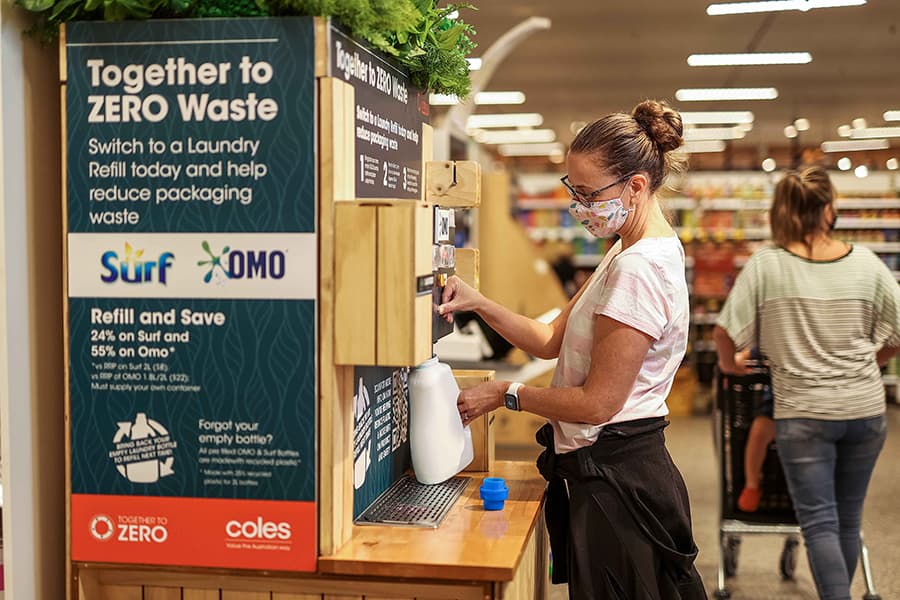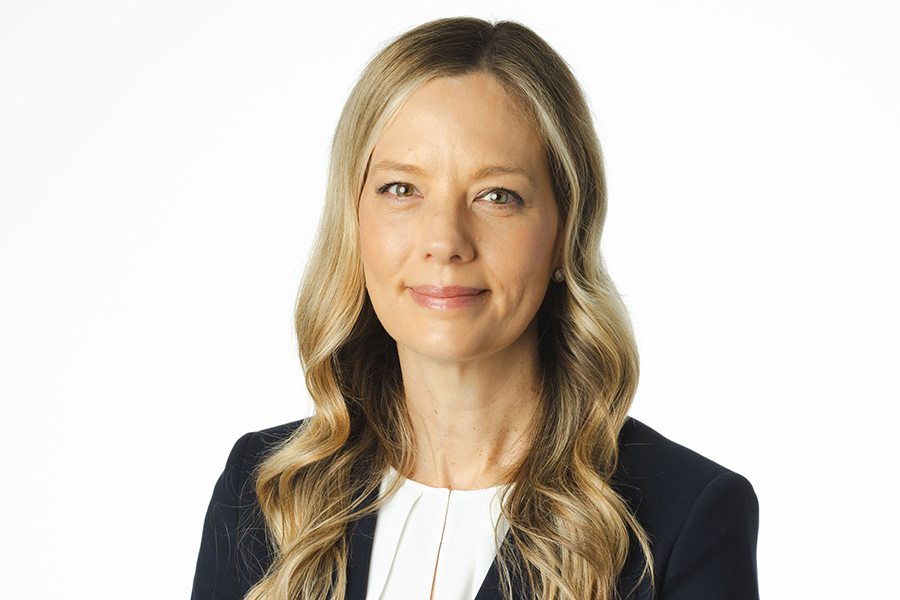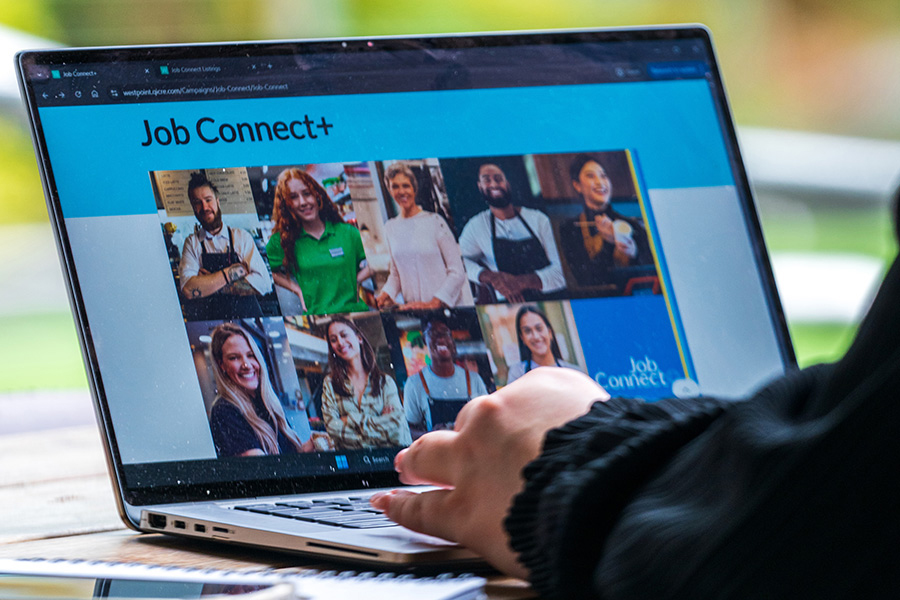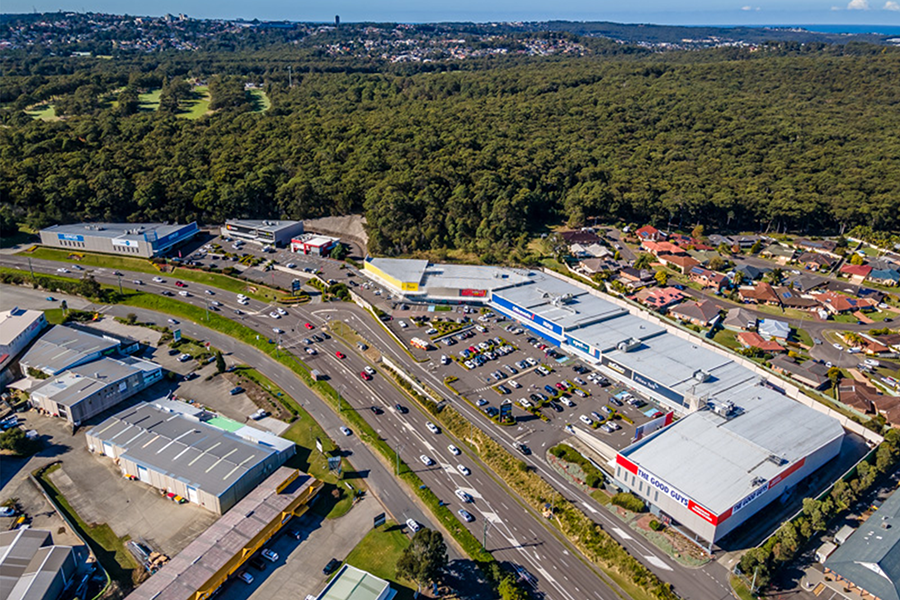As part of its ambition to be Australia’s most sustainable supermarket, Coles Group is launching a refreshed sustainability strategy built around the pillar of ‘Together to Zero’, commencing with targets to further reduce greenhouse gas emissions, commit to 100% renewable electricity and set a course to net zero greenhouse gas emissions.
Coles Group released its Climate Change Position Statement and announced targets to reduce greenhouse gas emissions, including the following commitments:
To deliver net zero greenhouse gas emissions by 2050
For the entire Coles Group to be powered by 100% renewable electricity by the end of FY25, building on the progress already made towards this target through renewable power purchase agreements, on-site solar and agreements with renewable electricity generators; and to reduce combined Scope 1 and 2 greenhouse gas emissions by more than 75% by the end of FY30 (from a FY20 baseline).
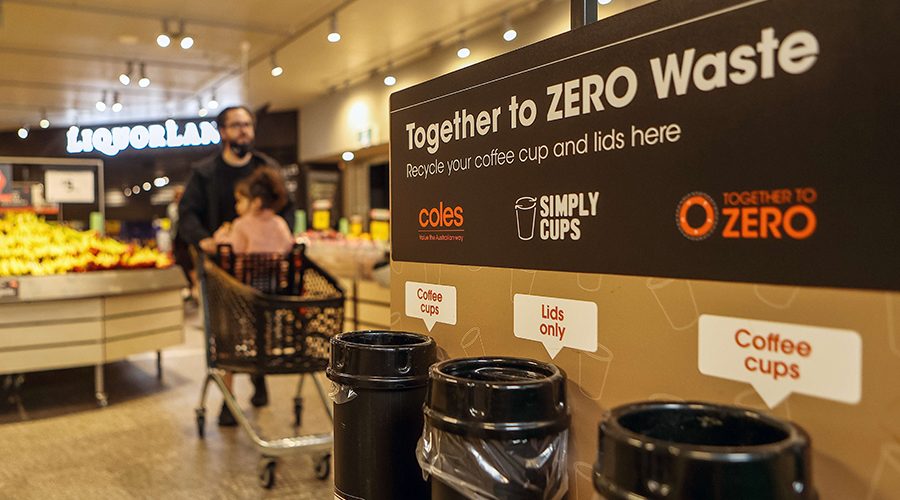
Coffee cup reccycling station at Coles Moonee Ponds
The refreshed strategy and new targets will be brought to life at the launch of Coles’ newest sustainability concept store in Moonee Ponds, Victoria, which has been designed to set a new standard in supermarket sustainability and help Coles create opportunities to reduce its environmental impact into the future.
Coles Group CEO Steven Cain said the launch of ‘Together to Zero’, along with the announcement of the new greenhouse gas reduction and renewable electricity targets were important steps in Coles Group’s mission to drive generational sustainability.
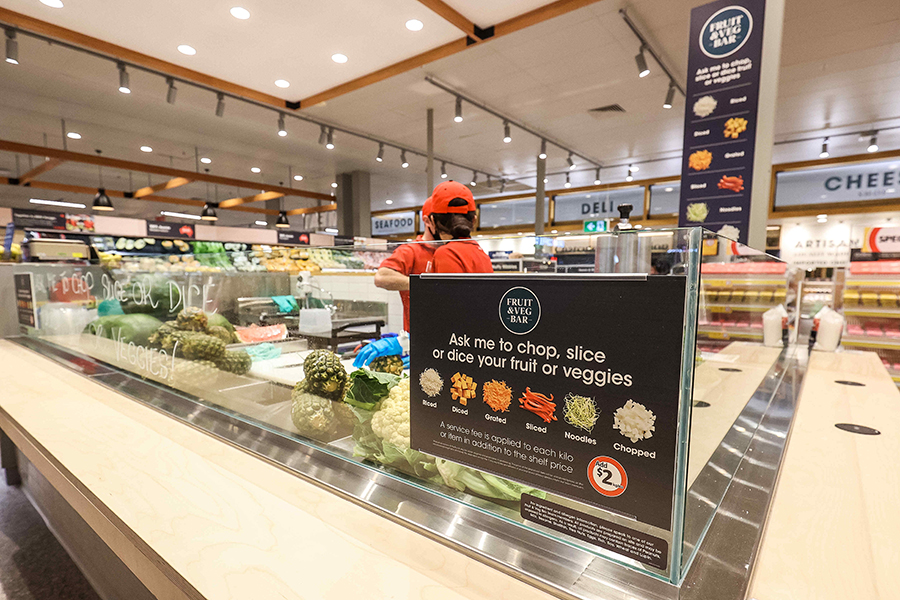
A fruit and veg bar where customers can have their healthy fruit and veg sliced, diced or riced right in front of them, or squeezed into juice
“As part of these targets that we are setting, we are delighted to introduce ‘Together to Zero’ which underlines our commitment to work together with all stakeholders towards net zero greenhouse gas emissions,” he said. “A key part of our ambition to be Australia’s most sustainable supermarket will be reducing our environmental impact, and we have a responsibility to help create a better Australia for future generations.”
Greenpeace Australia Pacific particularly welcomed the announcement of Coles’ commitment to 100% renewable electricity by 2025, which will see the company, as one of Australia’s biggest energy users, responsible for 1% of the country’s total electricity consumption, also commit to 75% emissions reduction for Scope 1 and 2 emissions by 2030. REenergise campaign director Lindsay Soutar, from Greenpeace Australia Pacific, said Coles’ commitment to clean energy has far-reaching implications.
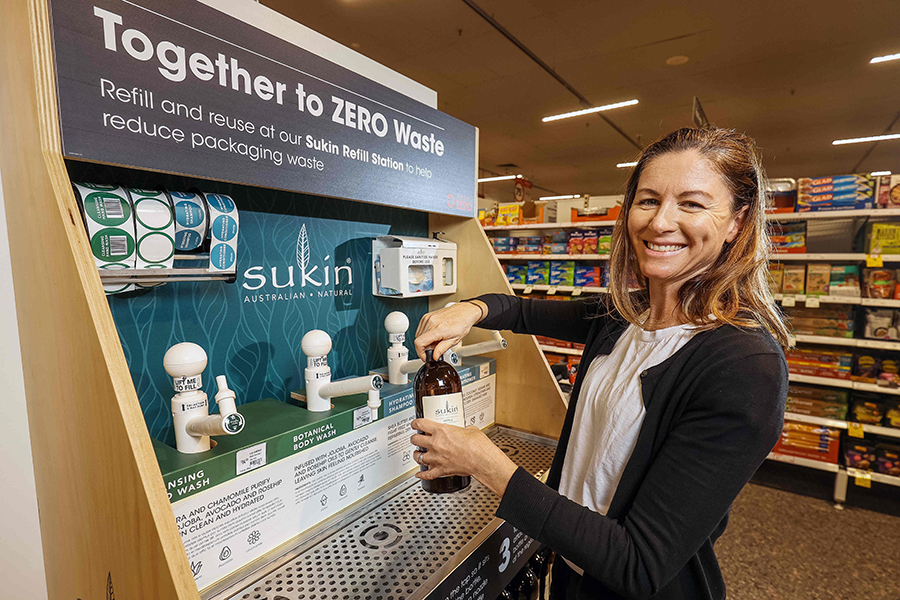
Catherine Fitzgerald, using the new Sukin refill station
“Emissions are down, down, down as Coles shifts away from coals, and towards 100% renewable electricity,” said Soutar. “Coles making the clean energy switch will put a big dent in Australia’s greenhouse gas emissions, inspiring confidence in towns and cities across the country that even the biggest and most complex businesses can run on renewable energy.
“All three of Australia’s biggest supermarkets have now committed to 100% clean electricity, meaning the goods and services Australians use every day will soon be brought to us by the wind and sun,” she said. “Combined with the large-scale renewable power purchases Coles has already made, today’s announcement sees them swipe the retailer renewable energy crown from rival Woolworths – for now.”
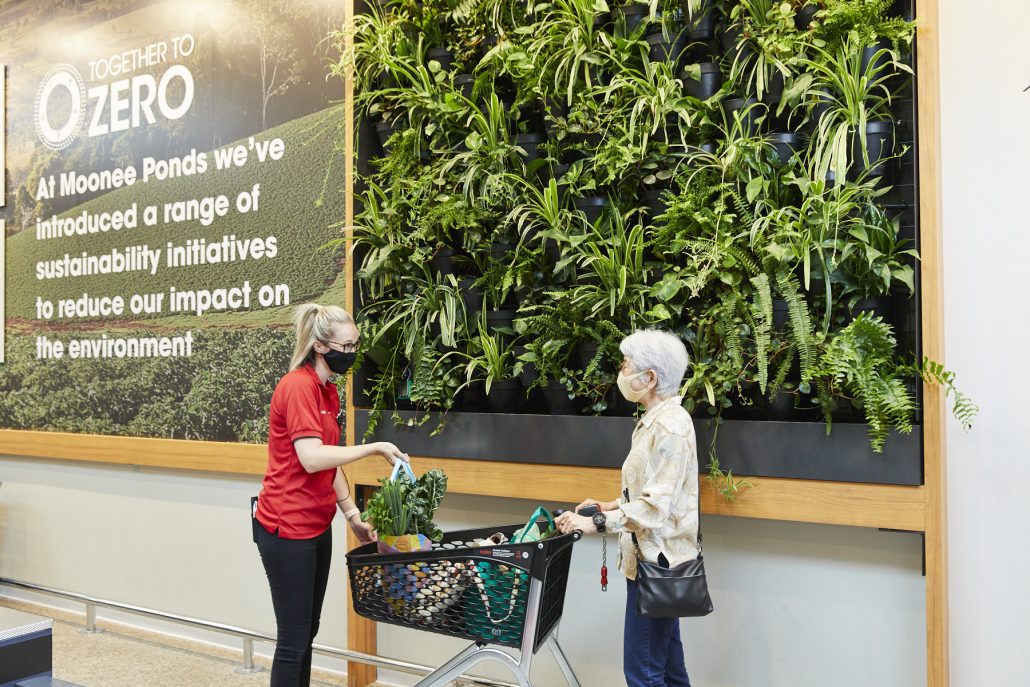
Coles Moonee Ponds has natural green walls
Together to Zero – emissions, waste and hunger
‘Together to Zero’ involves a long-term aspiration towards zero emissions, zero waste and zero hunger, with Coles Group constantly striving to find ways to reduce waste, reduce greenhouse gas emissions and help Australians in need.
In February, it was announced that Coles would no longer sell single-use plastic tableware products including cups, plates, bowls, straws and cutlery from 1 July 2021. The move will divert 1.5 million kilograms worth of single-use plastic from landfill each year.
Working with REDcycle since 2011, Coles and its customers have helped collect more than 1.4 billion pieces of soft plastic that have been turned into furniture, playground equipment, roads and most recently used in the construction of Coles supermarket carparks.
Coles this week announced a partnership on a joint feasibility study to determine the technical, economic, and environmental benefits of a local advanced recycling industry in Victoria. This new collaboration marks the first steps into a circular economy for soft plastic packaging. Coles is committed to helping customers understand what packaging they can recycle and more than 2,800 Coles Brand products now carry the Australasian Recycling logo.
Coles’ community partnerships help Australians in need while driving improved sustainability outcomes, including through food donations equivalent to more than 138 million meals since 2011, as part of Coles’ partnership with food rescue organisation SecondBite.
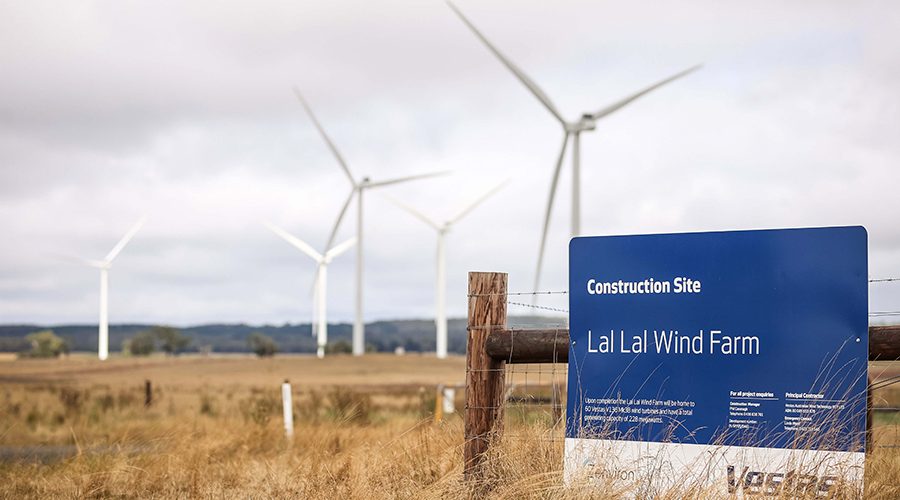
Lal Lal Wind Farm, Yendon, Victoria
Lal Lal Windfarms agreement brings targets closer
Meanwhile, Coles Group has also signed an agreement with Lal Lal Wind Farms near Ballarat, Victoria, for the purchase of large-scale generation certificates for renewable electricity until the end of 2030.
Under the agreement, Coles Group will purchase enough large-scale generation certificates from Lal Lal Wind Farms to further increase Coles’ renewable electricity to 45% of total consumption by FY23. Lal Lal Wind Farms has been exporting renewable electricity at full capacity to the Victorian grid since December 2020.
Coles Group is already well on the path to deliver on each of the greenhouse gas emissions targets announced today after becoming the first major Australian retailer to commit to buying renewable electricity through a power purchase agreement in 2019. From July 2022, Coles will also source more than 90% of its Queensland electricity requirements from renewable sources.
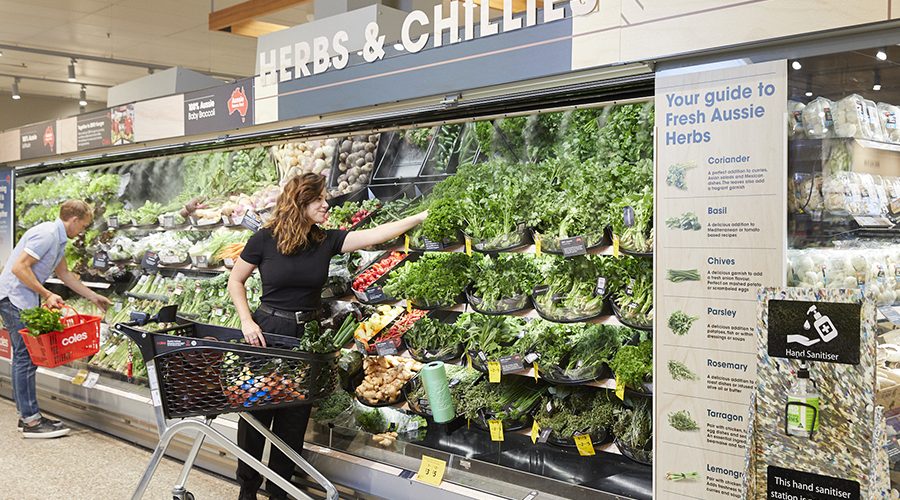
Coles fresh produce wall
“With over 2,500 stores and support centres across Australia, more than 118,000 team members and an average of 21 million customer transactions each week, Coles Group is Australia’s twelfth largest user of electricity,” said Cain. “We have already reduced Scope 1 and Scope 2 greenhouse gas emissions by 36.5% since 2009 and, with these new targets, we have an opportunity to play a leading role in driving climate action.
“Our new targets for Scope 1 and 2 emissions commit us to an accelerated reduction in greenhouse gas emissions that exceed the climate change ambitions of the Paris Agreement,” he added. “We’re looking forward to working collaboratively with our team members, suppliers, customers and communities to set a pathway toward our long-term goal of net zero greenhouse gas emissions by 2050.”
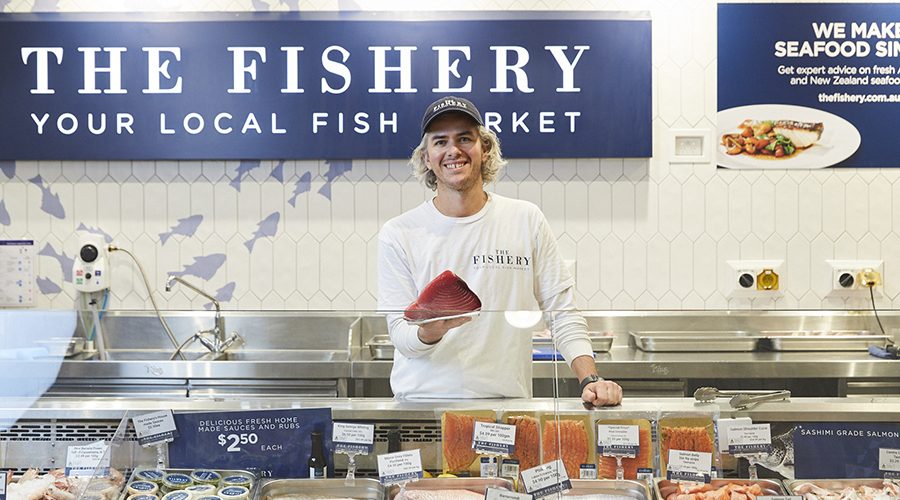
Local chef Sam Cheetham, the former head chef of Melbourne restaurant Cumulus Inc, serves up local catches for customers
CASE STUDY: Coles Moonee Ponds sets a new benchmark for sustainability and innovation
- Plastic packaging will be reduced using new ‘packageless’ refill stations that dispense laundry soaps, household detergents, bodywash, handwash, shampoo and conditioner from major Australian brands Omo, Surf and Sukin.
- Trial of misting and cold plates which has enabled the removal of certain packaging without compromising freshness, quality and home life for customers.
- Reduction of plastic from fresh produce including herbs, chilli punnets, prepacked leeks, prepacked celery sticks, continental cucumbers, prepacked tri colour capsicums and sweet pointed capsicums.
- A fruit and veg bar where customers can have their healthy fruit and veg sliced, diced or riced right in front of them, or squeezed into a freshly made juice. The bar aims to produce the best juice and reduce waste by using fruit and vegetables at their ripest for juicing.
- Hand sanitising stations throughout the store made from recycled plastic.
- More than 80% of construction waste to transform Moonee Ponds was diverted from landfill and recycled over the duration of the project.
- Reusable cardboard boxes are available for customers to carry their grocery shopping in, housed in a container made from recycled plastic from Replas.
- Coles Marine Reusable Shopping Bags are being introduced which are made with 80% recycled content, including 20% marine industry waste.
- Trolley baskets are Australian made from 90% recycled milk bottles and 10% recycled plastic collected through REDcycle.
- The Fresh Produce single use plastic bag is now made from 50% recycled content and can be recycled via Redcycle at any Coles store. Reusable fresh produce bags are also available to purchase for 50c.
- The roof is catching water with a rainwater harvesting system, reducing external water use.
- Simply Cups coffee cup recycling station for customers to sustainably discard their coffee cups and divert them from land fill and the coffee is from Rainforest Alliance certified farms.
- First Coles renewal store to be upgraded with a natural refrigeration solution virtually eliminating greenhouse gas emission from refrigerant gases, and with recently installed doors on fridges to reduce energy consumption.
- Waste heat is captured from the refrigeration system to help warm the store.
- Moonee Ponds’ new naked herb range is being grown and delivered by Fresh Leaf Farms, based in Clyde, Victoria. The herbs have had all plastic packaging removed with the product label made for the first time from paper, not plastic. Fresh Leaf Farms received a Coles Nurture Fund grant award in 2011. This grant was used to invest in more sustainable growing techniques rather than traditional soil growing methods, ultimately using less water to grow herbs.
- Coles team member polo shirts are made from 65% recycled bottles.
- The Moonee Ponds store donates leftover edible food to food rescue organisation SecondBite which distributes to local community organisations including Flemington People’s Pantry, Asylum Seeker Resource Centre, Merri Outreach and Open Table. Last year the store donated 4,310kg of edible food which is the equivalent of 8,620 meals.
- REDcycle soft-plastic recycling available for customers at the front of the store with the soft-plastics used to make benches, furniture, playground equipment, roads and most recently carparks at Coles stores. Last year the store collected 3,992kg of soft plastic to be recycled.


